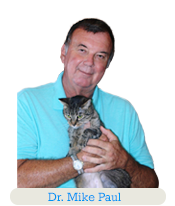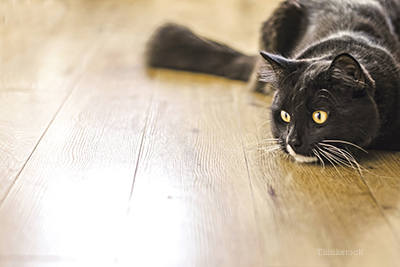
While stools do not normally have a pleasant smell, sometimes stools or feces can smell extremely strong and putrid. The cause for foul smelling stools in cats or humans can be very similar. It can be the food eaten, the bacteria in the colon1, and on occasion serious health problems. Additionally diarrhea and the presence of excess gas can cause bad odors.
Many feline disorders are accompanied by diarrhea and foul smelling stools. In most cases, fortunately, the condition will be temporary, either self-resolving or readily remedied with a change of diet2. “In some instances, however,” according to Tom Ewing, of Cornell University’s College of Veterinary Medicine, “diarrhea can be a manifestation of a deeply rooted, possibly life-threatening condition.”
What causes smelly stool in cats?
In kittens, foul fecal odors are often associated with the introduction of new foods or with inflammation from parasites. In most cases, any fecal abnormality in an adult cat—if not clearly attributable to a dietary problem—is likely to be directly associated with the gastrointestinal tract and will most often be the result of an inflammatory or infectious disease or even cancer2. Your veterinarian will help you find the cause so appropriate treatment can be undertaken.
- Diet as a cause of smelly stool in cats: Since people often vary their cats’ diet, it is sometimes difficult to determine what food ingredient is the offending agent. Sometimes an elimination diet (avoiding one ingredient at a time for a week or so), may help you narrow down the cause. Some cats are hunters and their prey can also cause smelly stools. Imagine your cat eating bugs, rodents and small reptiles and the smell may not be such a mystery—yummy! Surprisingly, vitamin supplements can also produce smelly stools. There are very few reasons to use vitamin and mineral supplementation in cats and today’s cat foods are well balanced so pet parents are more likely to cause problems by supplementing cat food. [Editor’s Note: Never add any sort of vitamin supplement to your cat’s food without talking to your veterinarian.]
- Bacteria as a cause of smelly stool in cats: Infectious enteritis may allow bacteria like E.coli or Samlonella to set up housekeeping. These organisms, as well as some viruses, can cause inflammation and result in diarrhea and gas that can be very foul smelling
- Parasites as a cause of smelly stool in cats: Some intestinal parasites of cats cause diarrhea and gas. In particular, Giardia can produce chronic, foul smelling feces with or without diarrhea. Coccidia and Trichomonas are also parasites that can cause intestinal inflammation, diarrhea and odor.
- Digestive disorders as a cause of smelly stool in cats: Conditions like mal-digestion and mal-absorption often result in rancid smelling stools. This can be associated with undigested and unabsorbed fats and starches.
Diagnosing the cause of smelly stools
Diagnostics will probably begin with blood tests and a fecal test to check for parasites. Depending on the cat’s age, the duration of the problem and other clinical signs, more tests may be necessary to evaluate digestion, the possibility of retrovirus infections—such as FIV and FeLV—and the possibility of hormonal abnormalities like excess thyroid production.
In most cases smelly stools of a few days duration in an otherwise healthy cat are not serious, but if diarrhea and foul odors persist or are accompanied by listlessness, blood in stools, vomiting or diarrhea, it could be an emergency. Consult your veterinarian at once. Do not try to treat without a veterinarian’s supervision.
If you have any questions or concerns, you should always visit or call your veterinarian -- they are your best resource to ensure the health and well-being of your pets.
Resources:
1. Kahn, April. "What Causes Foul Smelling Stool? 6 Possible Conditions." Foul Smelling Stools: Causes, Signs, & Prevention. N.p., n.d. Web. 14 Aug. 2014.
2. Ewing, Tom. "Diarrhea." College of Veterinary Medicine - Cornell University. N.p., 30 Aug. 2010. Web. 14 Aug. 2014.
